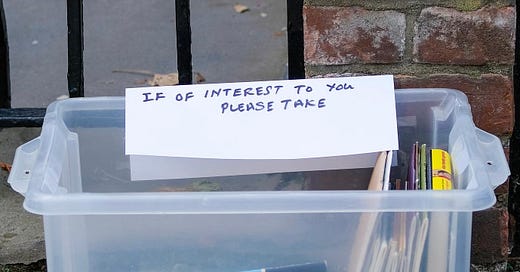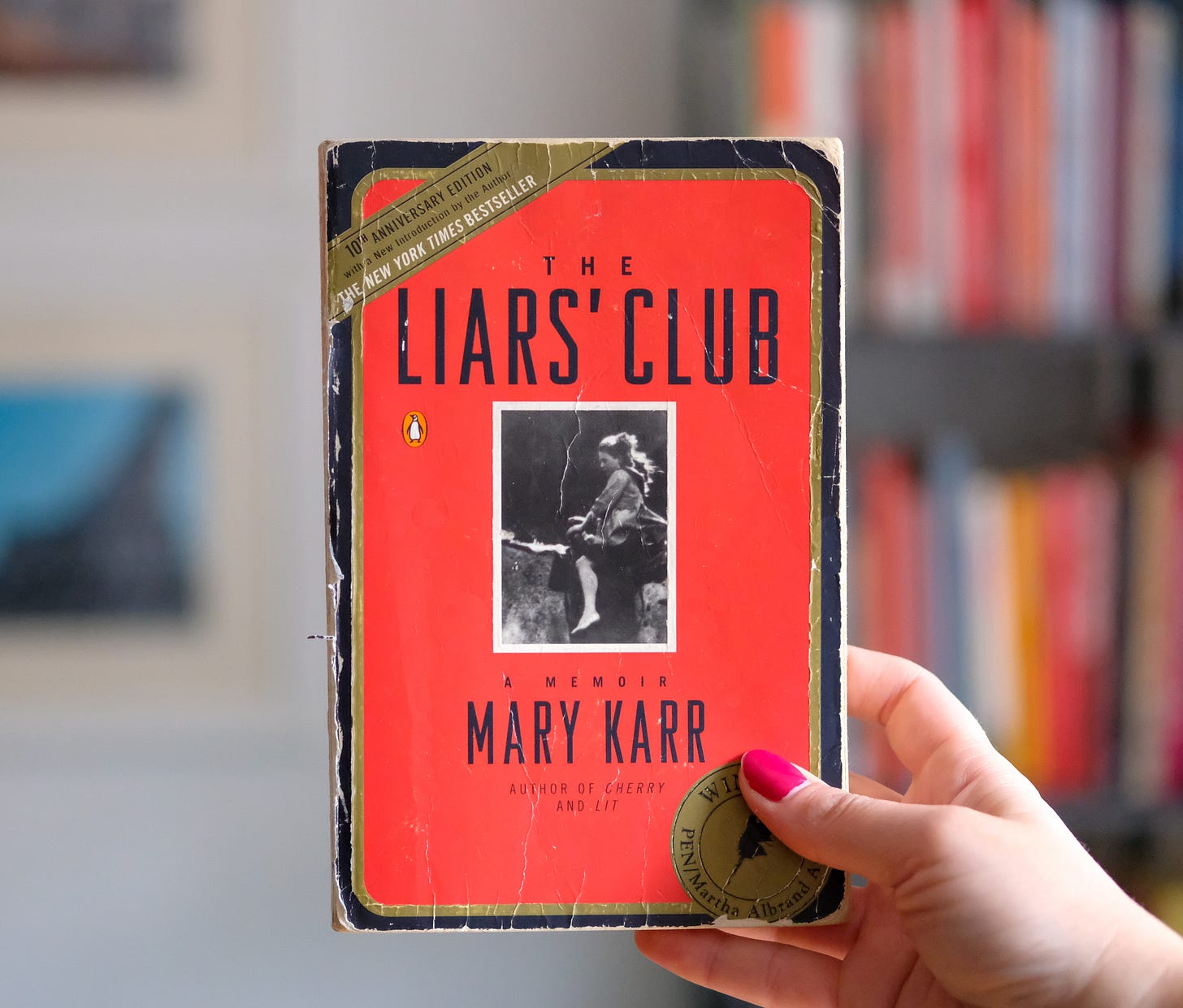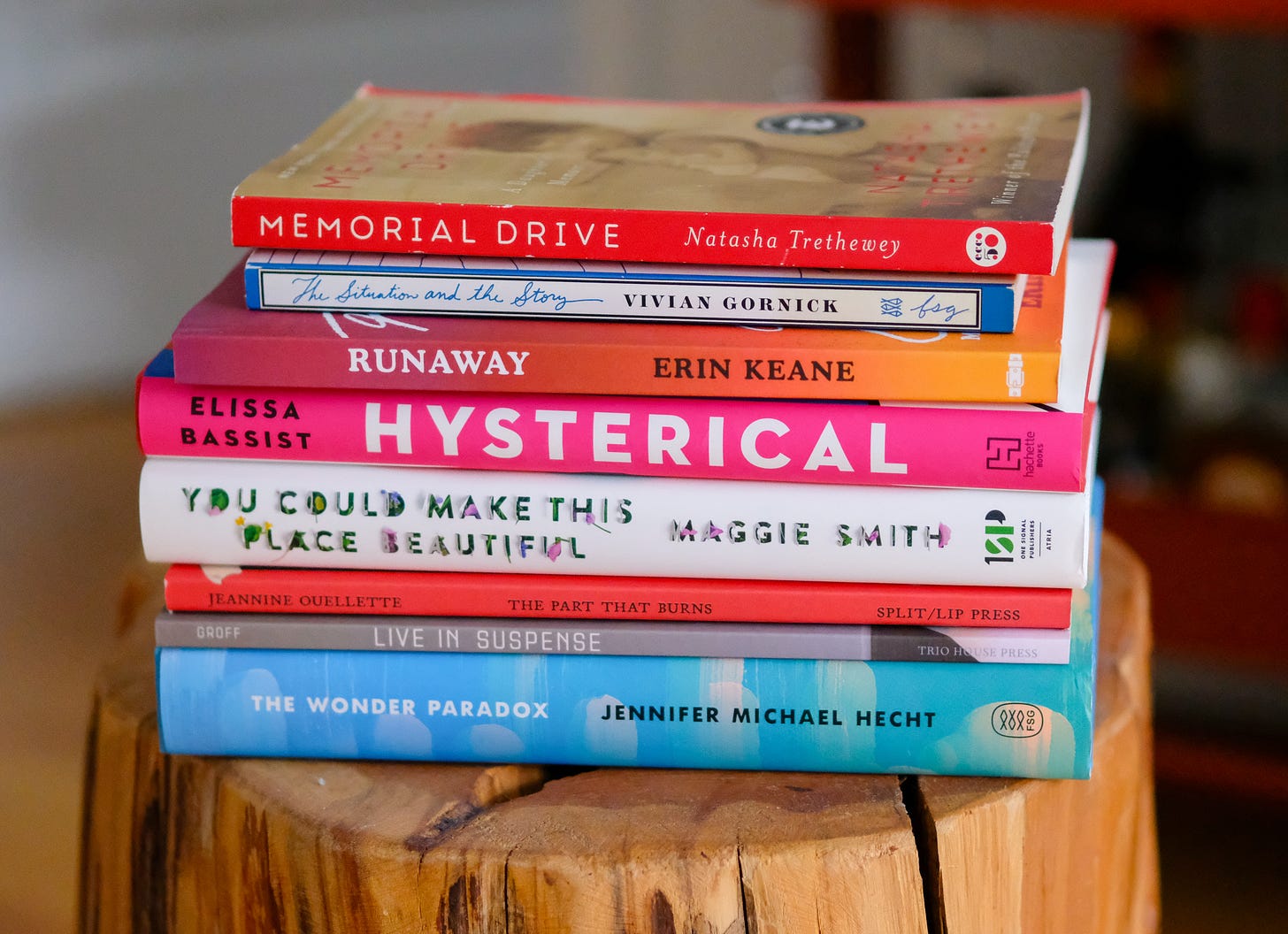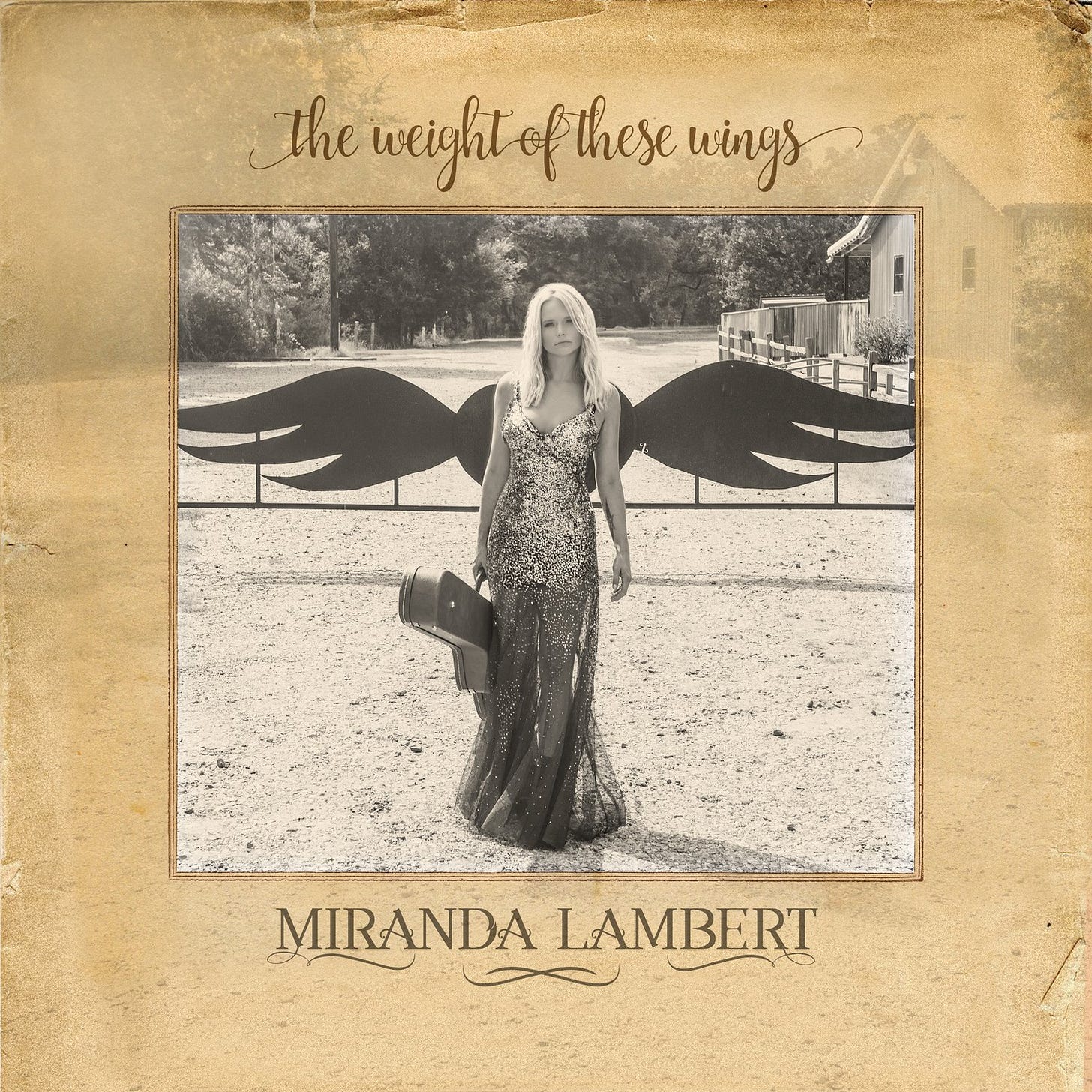Sometime during my MFA program, I was sitting at a bar with a man I had just met when he paused our group conversation to ask what kind of writing I did. We had been discussing filmmakers like Wes Anderson, Quentin Tarantino, and Paul Thomas Anderson, when I told him I was working on a memoir. I was a little tired of comparing the filmmakers and was happy to talk about anything else.
He followed up by asking what the difference between memoir and autobiography was. There was a hint of genuine interest, so sipping my dirty martini I said, “autobiography encompasses a person’s entire life, whereas memoir highlights a particular span of time or a major life event…and it uses elements of fiction to help tell the story—like plot, dialogue and character.”
“Except fiction is more interesting,” he responded, maybe with a hint of sarcasm, maybe trying to make a joke. “Well, that depends on who you ask,” I said. “I happen to think memoirs are very interesting.” My face was neutral, but I was annoyed. He backpedaled a smidge—maybe not wanting to debate it—agreeing that “interesting” was in the eye of the beholder, and our conversation moved on to something else. Back to movies, back to the male storytellers and the fictional worlds they create that the men around me wanted to discuss.
I don’t think the man in the bar was trying to be a jerk, but he had inadvertently confirmed an innate fear about the genre I love so much—the world expects your memoir to suck, to be self-indulgent, to be unoriginal. The burden of proof lies on the memoirist to convince skeptics that there is something worthwhile in their story. This man didn’t know what a memoir was, but he already decided he wasn’t interested in reading one.
In a New York Times article entitled “The Problem with Memoirs”, published back in 2011, Neil Genzlinger starts off the essay with, “A moment of silence, please, for the lost art of shutting up.” He then goes on to do the exact opposite for about fifteen hundred words, offering simple “guidelines” for anyone considering writing a memoir—listing all his concerns about what he refers to as an inflated genre of oversharing.
I won’t share those concerns here, but he isn’t the first to step forward, confident in his opinion, poised to tear down memoirists everywhere. In 1997, James Wolcott famously set the tone in a Vanity Fair article for memoirs in the wake of books like Mary Karr’s The Liars’ Club and Frank McCourt’s Angela’s Ashes. After the first wave of non-celebrity memoirs made a splash in the literary world, followed by a second wave, Wolcott concluded that “never have so many shared so much of so little.”
These once-every-decade-articles, usually written by men, have helped set the tone and reiterate it for anyone who dares to write, read, or defend memoirists in today’s publishing landscape. It’s already buried in the minds of “elite” readers, who almost entirely steer clear of the genre but still have something to say about it. They refuse to buy into the notion that memoirists are artists, or that the genre itself can exist outside the self-indulgent label it often receives.
It’s easy to dive into the misogyny that haunts the memoir genre—Leslie Lehr wrote an entire essay about it in a Writer’s Digest article entitled “Why is Memoir the Rodney Dangerfield of Writing Genres,” published last year. “Why don’t memoirs get more respect,” she asks. “Because women are writing them.” And while I agree with Lehr that men have (and continue to) set the tone for the genre by helping solidify its outcast status—the mindset has gone beyond it and successfully seeped into society. Many readers (women included) don’t exactly know what to think about the genre.
If you search the hashtag ‘memoir’ on Instagram these days, you won’t make it very far beyond the newest celebrity tell-all before you find an account captioning the latest literary memoir they picked up with something along the lines of, “I have never been a big memoir reader, but…,” or “I don’t typically read memoirs, but this one was an exception.”
I stumbled across a bookstagrammer account not that long ago highlighting a memoir she’d recently read, addressing her roughly 1,500 followers with the caption “I know what you’re thinking, I hate memoirs. Most of the time, I’m like, ‘Bestie, I didn’t ask,’ but this one was so great.”
You guys. They did it. They found the only memoir worth your time.
My issue with this perception of memoirs stems from the idea that there are only a handful out there worth our time (one out of four, according to Genzlinger), and the rest of them can be discarded as literary garbage—a waste of precious trees. I am no stranger to such tunnel-visioned buffet-style consumption. I spent my entire life loving country music and listening to the derogatory stereotypes associated with it, only to watch select songs or artists crossover to pop radio and suddenly be worth listening to.
Crossing over didn’t change people’s minds about country music, only their hand-picked exceptions. I felt the same kind of defensiveness when artists like Shania Twain, Taylor Swift, and Kacey Musgraves made it onto pop radio stations, while the rest of country music was regarded as trash. Most people never thought to look deeper for other artists they might love. The literary world’s approach to memoirs isn’t much different, each person thinking they have discovered the exception—no need to look any further.
I think it's self-indulgence, or what is misconstrued as self-indulgence, that gets under anti-memoirists’ skins—that famous “navel-gazing” defense. The idea that someone would have the audacity to write about themselves instead of waiting for another person to deem their experience worthy of print is frustrating. As soon as the veil of fiction is lifted, readers, critics, and even publishers are confused. Who is this person? Why should we care about them? It’s weird how those questions don’t seem to matter as much when the characters are made up, which is exactly when the questions arise for me.
Despite what many critics believe, most memoirists don’t seek to tell their stories for narcissistic reasons or to put themselves at the center of the universe. It’s not as if they’re trying to say, look over here and feel sorry for me and everything I’ve been through! They put themselves out there at the center of what they’re creating as all artists do—to find where they fit into the world with an intention of connecting with readers. Readers who hold a similar place and might not know how to make sense of it.
Or they just have no imagination to make shit up.
I love memoirs because of their bravery, their tenacity, and their originality. Memoirists want readers to know that the story is true and that they have ripped themselves open in the process—to show more courage than any other genre. To dig into the past and spend a decade or more constructing a narrative. To go through the steps needed to shape the story by confronting real-life people, by dredging up fuzzy (and possibly painful) memories, and endlessly processing and reprocessing their lives to find meaning that will resonate with a reader.
I’d like to ask Genzlinger or Wolcott or even the guy in the bar why the memoir genre is such an affront to them—why they care so much. I’m not sure who ordained them the gatekeepers of worthy stories, but I am here to say that they are wrong. That every memoirist deserves the space to tell their story, to seek out their audience, and to shift the burden of proof just slightly away from themselves. That the entire genre should be allowed to stand proudly next to the others.
I think I’m writing what I wish I had said to the man in the bar. The man who had no idea what he was talking about but said it anyway. A man who felt confident in his ignorance that fiction would always be more interesting than some “average” person's story. But in a world of unsolicited information and advice, especially targeted at women, I say this to any unsure memoirists out there: add to the noise. Tell your story and know that there is someone out there who needs to read that story in a way that only you can tell it.
And while you’re at it, put on Miranda Lambert’s The Weight of These Wings album and give country music another chance.









